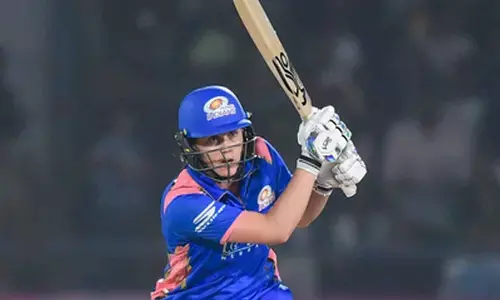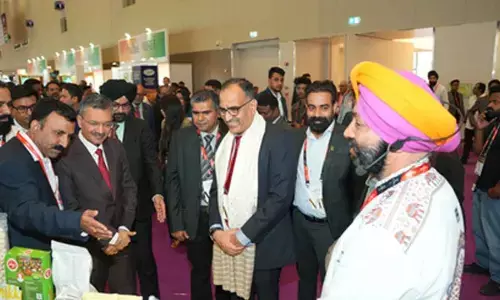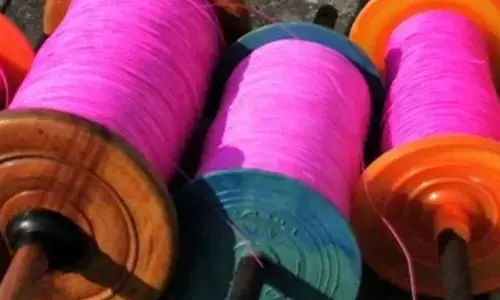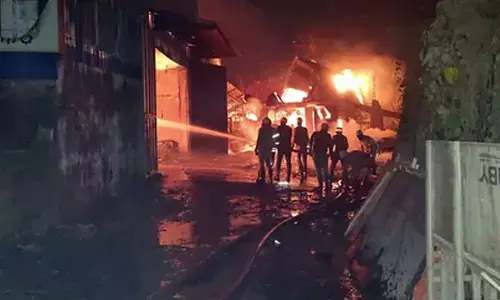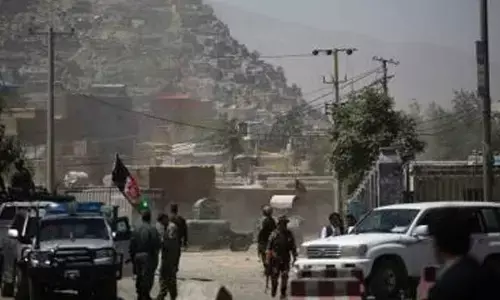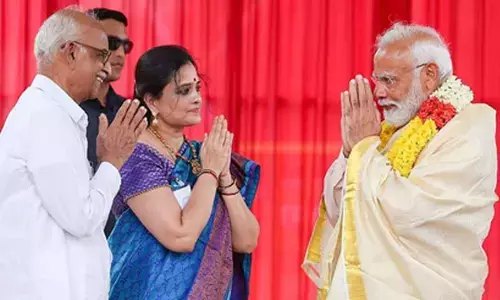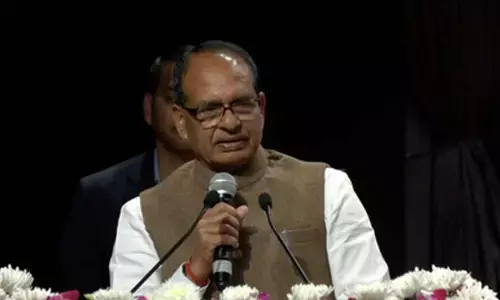India’s Modi Says Trust With U.S. Unprecedented
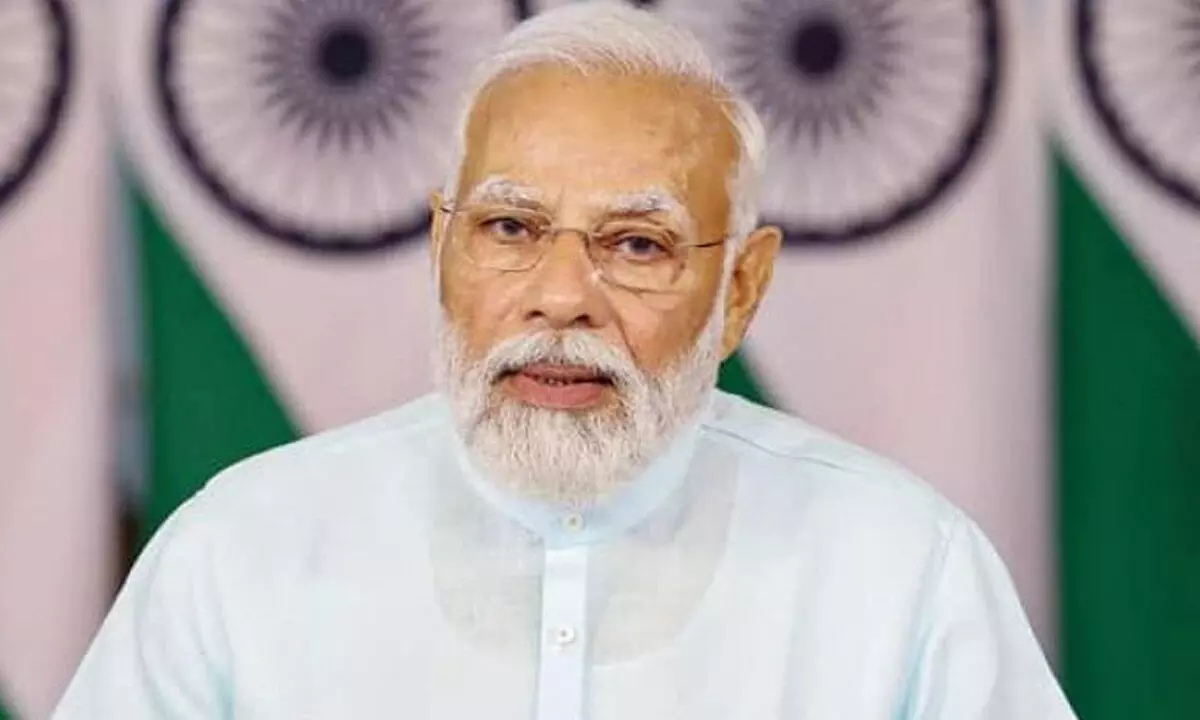
Indian Prime Minister Narendra Modi ( File Photo)
In a WSJ interview before an official visit to Washington, Prime Minister Narendra Modi called for an overhaul of global institutions.
NEW DELHI: Indian Prime Minister Narendra Modi said ties between New Delhi and Washington are stronger and deeper than ever as India moves to secure what he sees as its rightful place on the world stage at a moment of geopolitical turmoil.
“There is an unprecedented trust” between the leaders of the U.S. and India, Modi said in an interview ahead of his first o!cial state visit to Washington a"er nine years in o!ce.
He hailed growing defense cooperation between the two countries as “an important pillar of our partnership,” which he said extends to trade, technology and energy.
In Washington this week, Modi is expected to complete deals to manufacture jet-fighter engines in India to power advanced light combat aircra!, and to purchase high-altitude armed Predator drones from the U.S. in a multibillion-dollar agreement to boost surveillance e"orts over the Indian Ocean and near its disputed border with China in the Himalayas.
As the West squares o" against Moscow and, increasingly, China, New Delhi stands to gain. Washington has courted India hoping that it will be a strategic counterweight to Beijing. The U.S. has moved to deepen defense ties even as New Delhi makes large purchases of Russian oil at discounted prices, providing financial support for Moscow as it wages war in Ukraine.
Modi—who gives many speeches but fewer news conferences and interviews—spoke with The Wall Street Journal about India’s foreign policy, its e"orts to build a more modernand sustainable economy and a range of other topics in a nearly hourlong interview in his o#ce at his sprawling o#cial residence in the heart of New Delhi.
Overall, Modi’s message was that—from India’s role in global politics to its contributions to the world economy—the country’s time has come. He sought to portray New Delhi as the natural leader of the global South, in sync with and able to give voice to developing countries’ long-neglected aspirations.
“India deserves a much higher, deeper and wider profile and a role,” said Modi, wearing a yellow kurta and light-brown jacket. Peacocks squawked in the garden outside.
The 72-year-old leader called for changes to the United Nations and other international organizations to adapt them for an increasingly multipolar world order and to make them more broadly representative of the world’s less-a$uent nations and their priorities, from the consequences of climate change to debt reduction.
Unlike the vision of nonalignment advanced by Indian leader Jawaharlal Nehru in the early years of the Cold War, Modi’s foreign policy is one of multiple alignments, seeking to advance India’s interests in partnership with a range of global powers, including those in conflict with each other.
Modi is one of India’s most popular prime ministers. He and his Bharatiya Janata Party won nationwide elections in 2014 and 2019 by comfortable margins. With national elections due next year, Modi’s approval rating is high.
Political opponents and human-rights advocates have accused Modi’s party, which has roots in Hindu nationalism, of fostering religious polarization and democratic backsliding, pointing to issues such as restrictions on the press and removal of the special status of Indian-administered Kashmir to more closely integrate the Muslim-majority region into the country.
Modi said that India not only tolerates but celebrates its diversity.
“For thousands of years, India has been the land where people of all faiths and beliefs have found the freedom to coexist peacefully and prosper,” he said in a statement. “You will find people of every faith in the world living in harmony in India.”
On the economic front, Modi has won praise for eliminating bureaucracy, relaxing rules and opening the way for more foreign direct investment. The country has surpassed China as the world’s most populous. What’s more, its population is young, promising a significant demographic dividend.
The government has invested enormously in education and infrastructure, and it is poised to gain as multinationals look to diversify manufacturing and supply chains in an era of geopolitical tension. Apple is among the companies making significant new investments in southern India, with supplier Foxconn Technology Group planning new facilities in the states of Karnataka and Telangana and expanding iPhone production in the state of Tamil Nadu.
“Let me be clear that we do not see India as supplanting any country. We see this process as India gaining its rightful position in the world,” Modi said. “The world today is more interconnected and interdependent than ever before. To create resilience, there should be more diversification in supply chains.”
One thing India and the U.S. share are relationships with China that have grown increasingly fraught in recent years, marked by deepening military and economic rivalries.
For India, that challenge is at its doorstep, with rising tensions centering around its decadeslong dispute with Beijing over the 2,000-mile border separating the two countries, known as the Line of Actual Control. The countries have been building infrastructure and deploying more troops in the region since a deadly 2020 clash in the Himalayas.
Indian o!cials have blamed China for violating border agreements, and the two countries have held 18 rounds of military talks since 2020 aimed at preventing the dispute from spiraling into wider conflict.
“For normal bilateral ties with China, peace and tranquility in the border areas is essential,” Modi said. “We have a core belief in respecting sovereignty and territorial integrity, observing the rule of law and peaceful resolution of di!erences and disputes. At the same time, India is fully prepared and committed to protect its sovereignty and dignity.”
China’s Defense Ministry didn’t respond to a request for comment sent via the State Council Information O"ce. In drawing closer to Washington, the Indian government has had to overcome deep skepticism about the U.S. that dates back to the Cold War, when New Delhi became more closely aligned with Moscow a#er Washington declined to supply arms to India in 1965.
The U.S. instead became a military backer of India’s neighbor and rival, Pakistan.
India’s relationship with the U.S. has strengthened in recent years in part because of economic ties. Trade between the two countries reached a record $191 billion in 2022, making the U.S. India’s largest trading partner. The U.S. is India’s third-biggest source of foreign direct investment, and one of the top five destinations for investment from India.
At the same time, India has maintained close ties with Russia, which still provides about 50% of the country’s military supplies, including arms, ammunition, tanks, jet fighters and S-400 air defense systems. Washington has put pressure on India to reduce its dependence on Moscow for arms, and some in the U.S. have criticized Modi’s government for not taking a more forceful stance against Russia’s invasion of Ukraine. India has abstained from U.N. votes condemning the invasion.
“I don’t think this type of perception is widespread in the U.S.,” said Modi, referring to criticism of its stance on Russia. “I think India’s position is well known and well understood in the entire world. The world has full confidence that India’s topmost priority is peace.”
When it comes to the Ukraine conflict, “Some people say that we are neutral. But we are not neutral. We are on the side of peace,” said Modi. “All countries should respect international law and the sovereignty of countries.” Disputes should be resolved with “diplomacy and dialogue,” not war, Modi said.
He said he has spoken several times to Russian President Vladimir Putin and Ukrainian President Volodymyr Zelensky. He said he most recently spoke to Zelensky on the sidelines of the Group of Seven summit in Japan in May. “India will do whatever it can” and supports “all genuine e!orts to bring an end to the conflict and ensure enduring peace and stability,” he said.
Modi linked many of the world’s problems, such as terrorism, proxy wars and expansionism, to a failure of global institutions created during the Cold War to adapt, saying that smaller and regional groupings have emerged in the vacuum. He said global institutions such as the U.N. must change.
“Look at the membership of key institutions—does it truly represent the voice of democratic values?” he said. “A place like Africa—does it have a voice? India has such a huge population and is a bright spot in the global economy, but is it present?”
He signaled India’s desire to be on the U.N. Security Council, pointing to India’s role as a contributor of troops for peacekeeping operations around the world. “There has to be an evaluation of the current membership” of the council “and the world should be asked if it wants India to be there.”
Modi has o!en drawn parallels between his own rise and that of his country. Born in a small town in the western state of Gujarat three years a!er India gained independence, he has recalled working as a child in a family-owned tea stall.
He got his start in politics a!er joining the Rashtriya Swayamsevak Sangh, or RSS, an organization that is closely associated with the cause of Hindu nationalism. His work in the organization and later the Bharatiya Janata Party got the attention of a BJP prime minister, Atal Bihari Vajpayee, who tapped him to become the chief minister of Gujarat in 2001.
As a politician, Modi tends to ignite intense feelings in both supporters and opponents, but no one would dispute that he has come a long way from that tea stall.
Modi was once denied a visa to enter the U.S. a!er the 2002 Gujarat riots that killed more than 1,000 people, mostly Muslims. In 2012, an investigative panel appointed by India’s Supreme Court said it found no evidence of wrongdoing by Modi. The U.S. said it would grant him a visa to visit a!er he was elected prime minister in 2014.
That year he delivered a Hindi-language speech to a jubilant crowd of more than 18,000 at Madison Square Garden who were chanting his name. In the years since, more U.S. appearances have followed, including an address to a joint session of Congress in 2016 and a “Howdy, Modi” rally with President Donald Trump in Houston in 2019. He returns this week for an o"cial state visit.
There is a sense too in India that the country’s moment on the global stage has arrived.
Across the Indian capital, Modi’s image appears on signs promoting the Group of 20, with some bearing the motto India has chosen for its presidency, “One Earth, One Family, One Future.”
“I am the first prime minister to be born in free India,” Modi said. “And that’s why my thought process, my conduct, what I say and do, is inspired and influenced by my country’s attributes and traditions. I derive my strength from it.”
“I present my country to the world as my country is, and myself, as I am,” he said. Write to Rajesh Roy at [email protected], Brendan Moran at [email protected] and Gordon Fairclough at [email protected]








